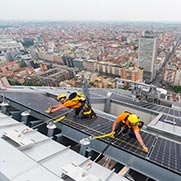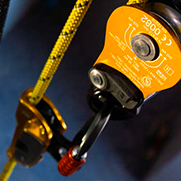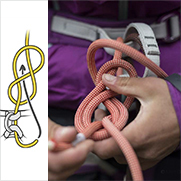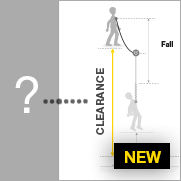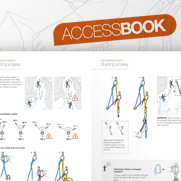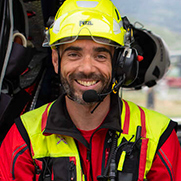I’D S uses and specifications
I’D is a self-braking belay / rappel device that can be used on either the harness or the anchor.
Warnings
- Carefully read the Instructions for Use used in this technical advice before consulting the advice itself. You must have already read and understood the information in the Instructions for Use to be able to understand this supplementary information.
- Mastering these techniques requires specific training. Work with a professional to confirm your ability to perform these techniques safely and independently before attempting them unsupervised.
- We provide examples of techniques related to your activity. There may be others that we do not describe here.
- Identifying your I‘D model:
- Rope access descender
- Lowering with I’D attached to an anchor
- Belaying with I’D attached to an anchor
- Belaying a climber using lead climbing technique
Identifying your I‘D model:
Rope access descender.
The brake-side rope can run over the reinforced edge, or in the friction groove, depending on rope diameter, user preference, the position of the braking carabiner and the hand...
Lowering with I’D attached to an anchor
The EN 341 standard changed in 2011 and contains new static and dynamic test requirements. Also, the mass required for performing the standard tests increased by 25 % (test mass of 187.5 kg).
Belaying with I’D attached to an anchor
I’D on the anchor allows for belaying a person who is using another progression system.
The user must never let go of the brake-side rope. The user must always make sure to keep slack out of the rope between the I’D and the anchor, to reduce the risk of a fall.
Giving slack on descent
Belaying a climber using lead climbing technique
For access from the bottom, the I’D allows belaying a lead climber, who clips the rope through intermediate anchor points as he/she climbs.
Beware of belayer / climber weight difference. Stopping a fall can be difficult if the climber is much heavier than the belayer.
Beware of belayer / climber weight difference. Stopping a fall can be difficult if the climber is much heavier than the belayer.
Giving slack
The cam has a small thumb rest that allows the rope to be unlocked for giving slack. The user must never let go of the brake-side rope.


